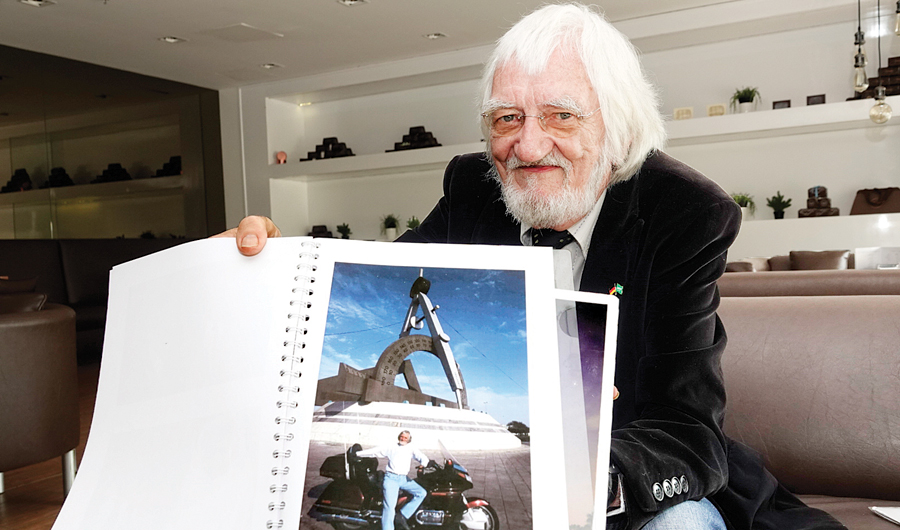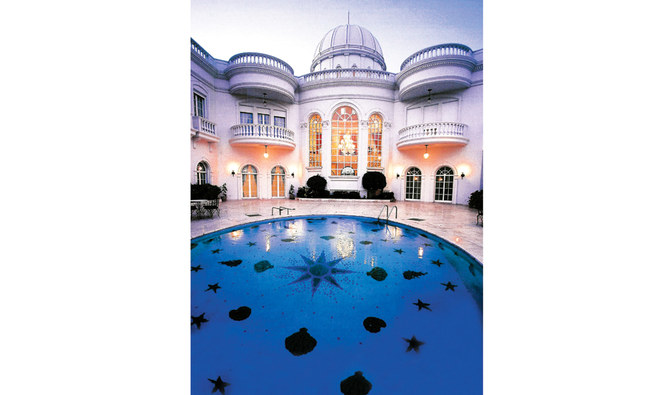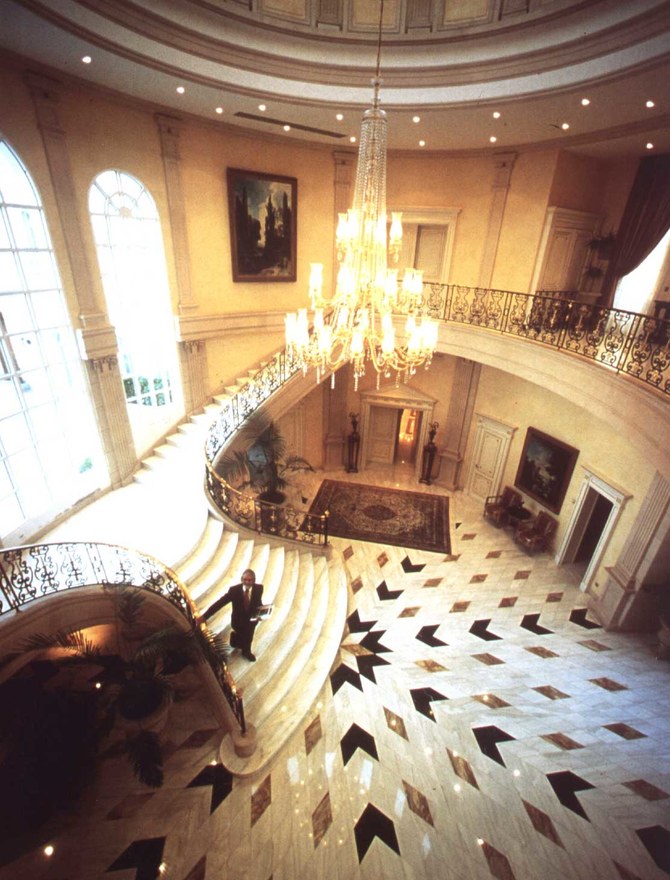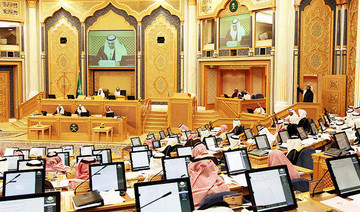JEDDAH: When German architect Wolfgang Zuppe arrived in Saudi Arabia 37 years ago to begin a new phase of his career, little did he imagine that he would design some of the country’s most monumental structures and prestigious palaces.
“There was an article in a newspaper, an invitation for architects to meet for projects,” he said. “I applied and they were impressed, and I made the transition — that was 37 years ago, about 1983.”
Prior to his move to the Kingdom, Zuppe — who was born in Kleve, Germany — had lived and worked in Tehran in the time of the Shah. With the change of regime, he was forced to leave his life of luxury there and return to his home country, where he spotted the advert that would change the course of his life.
“I got into architecture because it combines art and buildings; architecture was my dream, and I was totally right,” he said. “It led to many interesting things happening in my life and it is why I continued to rise, to the point where I designed two palaces for Prince Sultan bin Abdul Aziz Al-Saud, along with other members of the royal family upon his recommendation.”
Zuppe spoke fondly of the late Prince Sultan, agreeing with the general consensus that the people loved him. In his wallet, he carries four photos of himself and his wife with the prince. When he proudly shows them to the people he meets, he said many respond with favorable comments about the prince and words of admiration.
Prior to meeting Prince Sultan for the first time, Zuppe was told by his manager to make sure no one else was present. When the day came, the architect sat with his wife in their home awaiting the prince, who was due to arrive at 6 p.m.
“At exactly six o’clock, the door opened and in he walked, by himself, no security or police or a driver,” said Zuppe. “He was very happy with the design when he saw the sketches.”
He recalls the prince was delighted and said: “Oh, it’s nice — helo, helo (the Arabic word for beautiful).”
Not every royal was so personable and down to earth, the architect added, savoring the memory of what happened next.
HIGHLIGHTS
• Prior to his move to the Kingdom, Zuppe — who was born in Kleve, Germany — had lived and worked in Tehran in the time of the Shah. With the change of regime, he was forced to leave his life of luxury there and return to his home country, where he spotted the advert that would change the course of his life.
• Wolfgang Zuppe has worked on countless commercial projects, including hotels, malls and airports, but one of his most distinctive designs is the huge ‘Compass Structure,’ a monumental landmark that decorates Al-Handasa roundabout in Jeddah. It features giant models of technical-drawing tools, including a compass, protractor, set square and ruler.
• In recognition of his work over the years in the Kingdom, Zuppe was awarded the Order of Merit of the Federal Republic of Germany in 2014 by the president of Germany, Joachim Gauck.
“Then he asked me, ‘Don’t you have any tea?’ and in response I told him what the manager had said,” Zuppe continued. “He stood up, took my arm and asked me where the kitchen was, so I led him to the kitchen. We went there, with this man who was to be the crown prince, in my kitchen. He took hold of the kettle, filled it with water from the tap, switched on the gas himself, put the kettle on the stove and we waited for the water to boil. Then he said, ‘Now we make tea for your wife.’”
Zuppe said he had met many important, high-ranking people, but none quite like Prince Sultan. For someone of the prince’s status to be so down to earth, Zuppe considered him a real man.
It was an incredible moment in Zuppe’s life, but his journey to get there had not been easy. His relationship with his mother was respectful and loving, but his father was not very supportive or understanding when his son rejected the family business in favor of studying architecture.
“He told me, ‘You will come on your knees to me, begging: “Please let me come to do something for you. I want money from you, I don’t have any.’’’ To this day, I never forgot it. I respect my father but I’m not as close to him as I am to my mother,” he said.
Zuppe proved his father wrong, not only designing palaces for Prince Sultan but for other royals, including a 3,000-square-meter palace for a princess whose name he is not at liberty to reveal.
“I made some sketches for her straightaway in the same hour I met her, on a piece of paper on the table,” he said. “She said, ‘Oh, interesting. I’m already working with seven other architects and I fly to London tomorrow. Could you come to London?’ I said, ‘With pleasure.’”
Zuppe paused to pull out two large sketches of the elaborate two-story palace. When he presented them to the princess, he said, she was flabbergasted and could only say, “It’s wonderful.” It was the start of a collaboration with one of his most esteemed clients.
“When I showed her my drawings, I didn’t bother asking how much the payment was — all I cared about was the prestige and not the fortune,” he said. “I never asked and I didn’t need a contact; but I got good money and, from time to time, the princess would place money in my hand before I left.”

Looking toward the future, Wolfgang Zuppe has no plans to retire and hopes to be a part of upcoming Saudi projects, including the NEOM smart city, and design more palaces. (AN photo by Huda Bashatah)
Zuppe has worked on countless commercial projects, including hotels, malls and airports, but one of his most distinctive designs is the huge “Compass Structure,” a monumental landmark that decorates Al-Handasa roundabout in Jeddah. It features giant models of technical-drawing tools, including a compass, protractor, set square and ruler.
When he is not working, Zuppe can often be found riding one of the five motorcycles he owns. His love of the machines goes back a long time, and has rubbed off on his wife and daughter.
“While studying at Berlin University, I took some time off and went to Japan,” he said. “I saw a small motorcycle, something that cost (the equivalent of SR300) and I bought it. I had never taken lessons or had any experience, but I got it and now I’ve got a Yamaha VMAX. It’s fun and liberating, and I’m very happy to see women try it here in Saudi Arabia.”
In recognition of his work over the years in the Kingdom, Zuppe was awarded the Order of Merit of the Federal Republic of Germany in 2014 by the president of Germany, Joachim Gauck.
Looking toward the future, he has no plans to retire and hopes to be a part of upcoming Saudi projects, including the NEOM smart city, and design more palaces.
“There is nowhere else I could do such fantastic projects,” he said, adding that this is why he has been happy to remain in Saudi Arabia for so long.








































